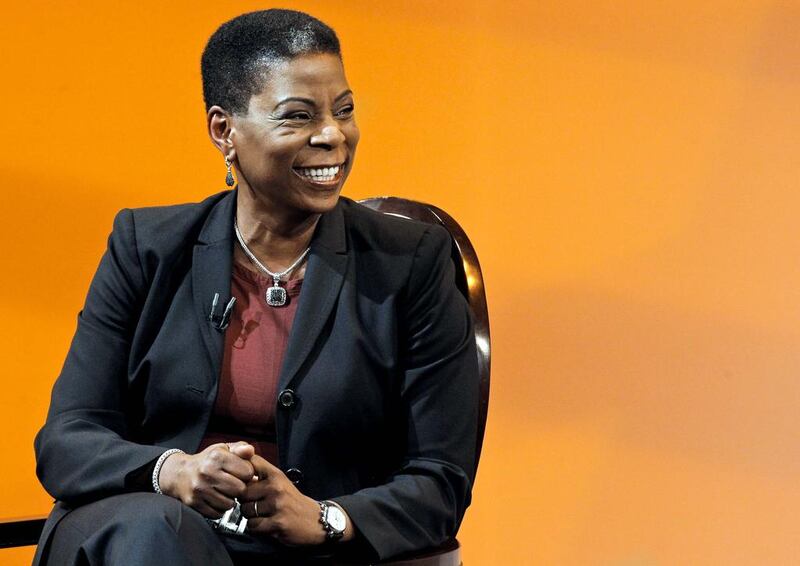Ursula Burns may head Xerox, but you could hardly call her a carbon copy of the average American chief executive.
The 56-year-old has worked at the technology company since 1980, back when photocopying meant big business and the Xerox name was synonymous with it.
She began her career at the company as a summer intern, having graduated in mechanical engineering from university in her native New York. In a remarkable ascension of the ranks, Ms Burns was named chief executive in 2009 and, additionally, chairman in May 2010.
Her appointment as chief executive marked two firsts in American corporate life. She became the first — and remains the only — African-American woman to lead a major US corporation. And Ms Burns was also the country’s first female chief executive to succeed another woman, having taken the reigns from Anne Mulcahy.
Yet despite such personal triumphs, Ms Burns is conscious that the wider executive world still does not remotely reflect the make-up of its customer base — also an issue in the Middle East.
“More than 70 per cent of the people in the world do not look like the people who are running companies today. How in the hell can that be?” says the frank-speaking New Yorker.
“Half the world are women, but they are literally in single-digit numbers in the C-suite. Half the world is non-white, and they are in single-digit numbers in the C-suite.”
The numbers are stark. According to 2013 data from GMI Ratings, the most recent available, women hold 11 per cent of board seats at the world’s largest companies. Norway — the first country in the world to impose a gender quota for large corporations — leads the way, with women accounting for 36.1 per cent of board members.
But the GCC countries are at the opposite end of the scale, with women accounting for just 1.5 per cent of board seats, according to the Dubai-based Hawkamah, the Institute for Corporate Governance.
Some leaders are trying to do something about this. In December 2012, Dubai issued a law obliging government departments and related companies to include women on their boards. Yet the exact timeline for adhering to that ruling is unclear.
Ms Burns said gender quotas in the boardroom are suitable only as a last resort — and even then do not represent a long-term solution.
In the Middle East specifically, there is no point setting quotas because there is not a sufficient mass of qualified female professionals from which to pick top executives, the Xerox executive adds.
“It would be putting the cart before the horse … The problem is that women can’t even drive [in Saudi Arabia], they don’t have access to good education. So you can keep setting all the quotas you want, and you can make a law, and still the overwhelming majority of the women would never have access to those [board] seats.”
Ms Burns was speaking to The National during a three-day trip to London, where she was attending a Xerox event at the Savoy Hotel to promote the company's business services.
And her company has a lot of promoting to do. In the past, Xerox became so inextricably linked with printers and copying machines that its brand name became a verb. But with the physical printing market largely on the decline, Ms Burns faces an ongoing challenge in shifting the company’s focus towards business processes and IT outsourcing.
One would imagine that this would be a tough call for someone who has worked at the same company for 35 years. But Ms Burns says she is anything but entrenched in the old ways of thinking.
“Staying fresh is an active game. I don’t sit in my office — very rarely, unfortunately. What I spend a lot of time doing is interacting with the world, particularly with large clients. And that’s how you get a good perspective,” she says.
An impatience with the status quo is another characteristic she says has helped her take on Xerox’s fundamental challenges.
“We are and were the most successful document-technology company in the world. And part of the challenge with that level of comfort is that you basically become comfortable,” she says. “But we have to be very uncomfortable with today. Because today is yesterday; today becomes yesterday immediately. We have to continue to change things.”
Ms Burns was last year named by Forbes magazine the 22nd most powerful woman in the world. The executive attributes her success to two key factors: her family, and joining a company that was interested in her as a person, rather than as just filling gender quotas.
“I happened to go to a company that was really interested,” she says. “Not by law, but just really interested in the people who joined them.”
business@thenational.ae
Follow The National's Business section on Twitter





